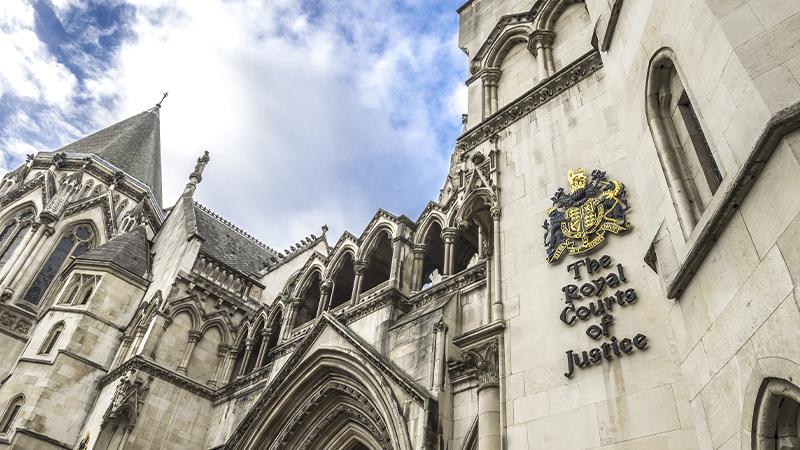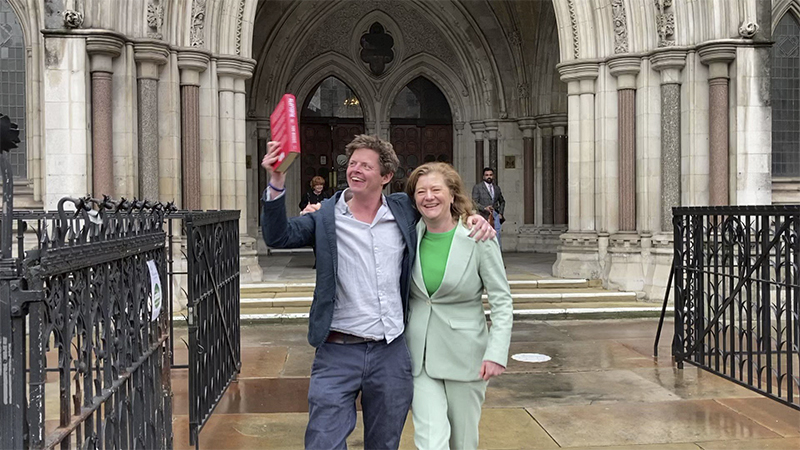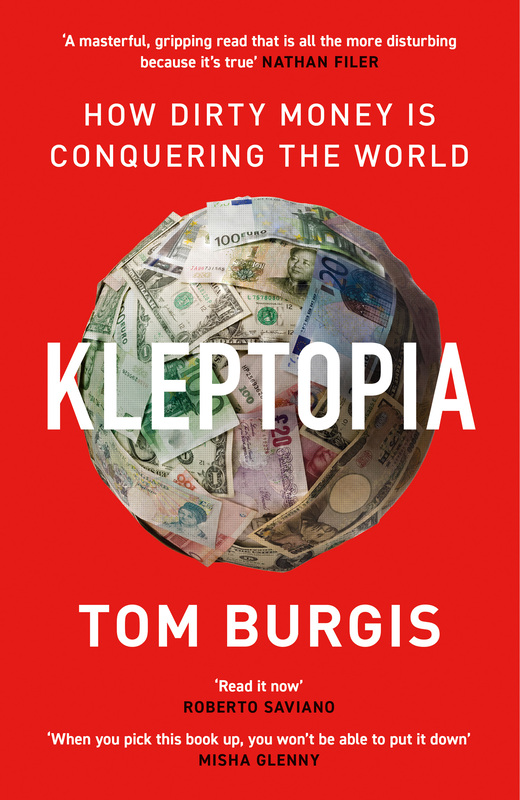Lawfare: how HarperCollins fought off the oligarchs in court battle
William Collins’ publishing director reflects on a pair of landmark legal cases in which two of her authors were sued by super-wealthy Russian businessmen.
At 3 p.m. on Wednesday 2nd March 2022, HarperCollins’ long legal battle with assorted Russian and former Soviet Union oligarchs reached its finale. Mr Justice Nicklin dismissed the complaints of Eurasian Natural Resources Corporation (ENRC) against our author Tom Burgis, refused permission for ENRC to appeal and awarded an initial £50,000 on account in costs against them, with the likelihood of further costs to come. A resounding victory for Burgis and his bestselling book Kleptopia: How Dirty Money is Conquering the World.
Burgis was joined at the centre of this maelstrom of oligarchical legal complaints by Catherine Belton, author of Putin’s People, which has been described in the Guardian as “the essential book to understand the Russian president”. These were matters of great public interest even before Putin’s murderous invasion of Ukraine. They are now essential reading.
Putin’s People was first published in April 2020. In January 2021, Russia’s now jailed opposition leader Alexei Navalny—recently recovered from a poison attack—issued a YouTube film revealing details of Vladimir Putin’s opulent $1bn Black Sea palace. During the film Navalny publicly endorsed Belton’s book. We believe this must have enraged the Kremlin. In the five weeks that followed we were hit by an onslaught of legal attacks in what has been deemed “the defamation case of the century”.
We all have a right to the law, but something is going very wrong with our system of justice when journalists fear to report on the business interests of the super-rich or feel bullied to print corrections to stories they believe to be true
Defamation law in the UK has a 12-month statute of limitation. The proceedings against us were served in swift succession at the very limit of this period from lawyers acting for Chelsea FC owner Roman Abramovich, Alfa Bank’s Mikhail Fridman and Petr Aven, business magnate Alisher Usmanov and the state-controlled oil giant Rosneft, run by Putin loyalist Igor Sechin. It seemed to us to be a co-ordinated attack. The meanings complained of were exaggerated, often to an absurd degree, and the actions were roundly condemned by media campaigners as being Slapps (Strategic Litigation Against Public Participation)—abusive lawsuits designed to intimidate and outspend journalists, writers and publishers into silence and/or censorship. All these oligarchs are now sanctioned.
The costs of defending such actions are vast. The Defamation Act of 2013 was designed to stop London being used as the “libel capital of the world”. It did not go far enough. On Belton, HarperCollins spent an estimated £1.5m in legal costs just getting to the preliminary “meaning hearings”. Abramovich chose to sue us in Australia too, although he has no business interests or reputation there. His purpose? To increase massively the cost/risk ratio for HarperCollins. No wonder so many publishers and newspaper editors actively choose to avoid publishing anything on Russia, its oligarchs and kleptocrats the world over. Had we lost at trial, it is likely that the costs could have exceeded £10m.
These litigious, obscenely rich men are represented by a well-paid niche of London’s professional class who have spent decades working on behalf of the oligarchs. Legal insights aside, such firms are masters of the baroque, prolix letter: Carter-Ruck’s for Rosneft ran to 17 pages. Three out of four of their complaints against Putin’s People were subsequently dismissed outright by the judge, and the fourth was heavily caveated.
We all have a right to the law, but something is going very wrong with our system of justice when journalists fear to report on the business interests of the super-rich or feel bullied to print corrections to stories they believe to be true. For the oligarchs, it is win-win. Their pockets are among the deepest in the world. Vast legal bills don’t bother them. They have the satisfaction of watching writers and publishers tied up in the knots and expense of legal dispute for months and months. They may get an apology or correction. They may not. But they have got in the way of publishing, exacted an emotional and economic toll on the defendants and demonstrated to others the dangers of investigating further. This is lawfare. It needs to stop.
Court success
Sitting next to Tom Burgis in the high court last week, I was reminded of lawfare’s human cost. The complaint against his book was ludicrous and Burgis is himself no stranger to courtrooms, but he was visibly shaken by the experience. It came after months of wrangling with lawyers from Taylor Wessing, defending his choice of words, his evidence. ENRC had also issued subpoenas against HarperCollins US in a futile attempt to ferret out Burgis’ sources, again wasting tens of thousands of pounds. Writing the book had brought him hazards enough, with research trips to Kazakhstan to investigate a massacre, to Africa to gather evidence of suspicious deaths linked to corruption, to Moscow to meet the mafia. Once home, he discovered that he had been subjected to surveillance.
All the sweeter, then, to have emerged from both cases victorious. The Belton cases were settled with a small number of changes to the book that would be imperceptible to most readers and represent a massive climbdown by those who had complained. We paid a donation to a charity of our choosing to acknowledge one piece of misreporting over the initial ownership of Abramovich’s Sibneft oil producer. No costs or damages were paid, and the Burgis case was dismissed out of hand.
HarperCollins and News Corp have been robust throughout, backing these two authors to the hilt and placing our considerable legal resources at their disposal. Fighting off the oligarchs would have been impossible without this. Practitioners of lawfare have, I suspect, become accustomed to writers and publishers quickly conceding. But at HarperCollins, news is part of our DNA. We will continue to find and publish investigative writing that probes the business interests of the rich and powerful. Or anything else that we believe to be in the public interest.
What must happen next—and urgently—is a reform of the law. Justice secretary Dominic Raab has announced an intention to introduce measures to prevent those “close to Putin” coming to the UK “to bankrupt people who shine a light on his excesses”. MPs such as Liam Byrne, David Davis and Bob Seely have been campaigning for the same in the House of Commons. It is time to stop writers and publishers being sued into silence, and to bring an end to this abuse of our courts.
Tom Burgis’ Kleptopia: How Dirty Money is Conquering the World (9780008308384, £9.99) and Caroline Belton’s Putin’s People: How the KGB Took Back Russia and Then Took on the West (9780007578818, £9.99) are published by William Collins.























